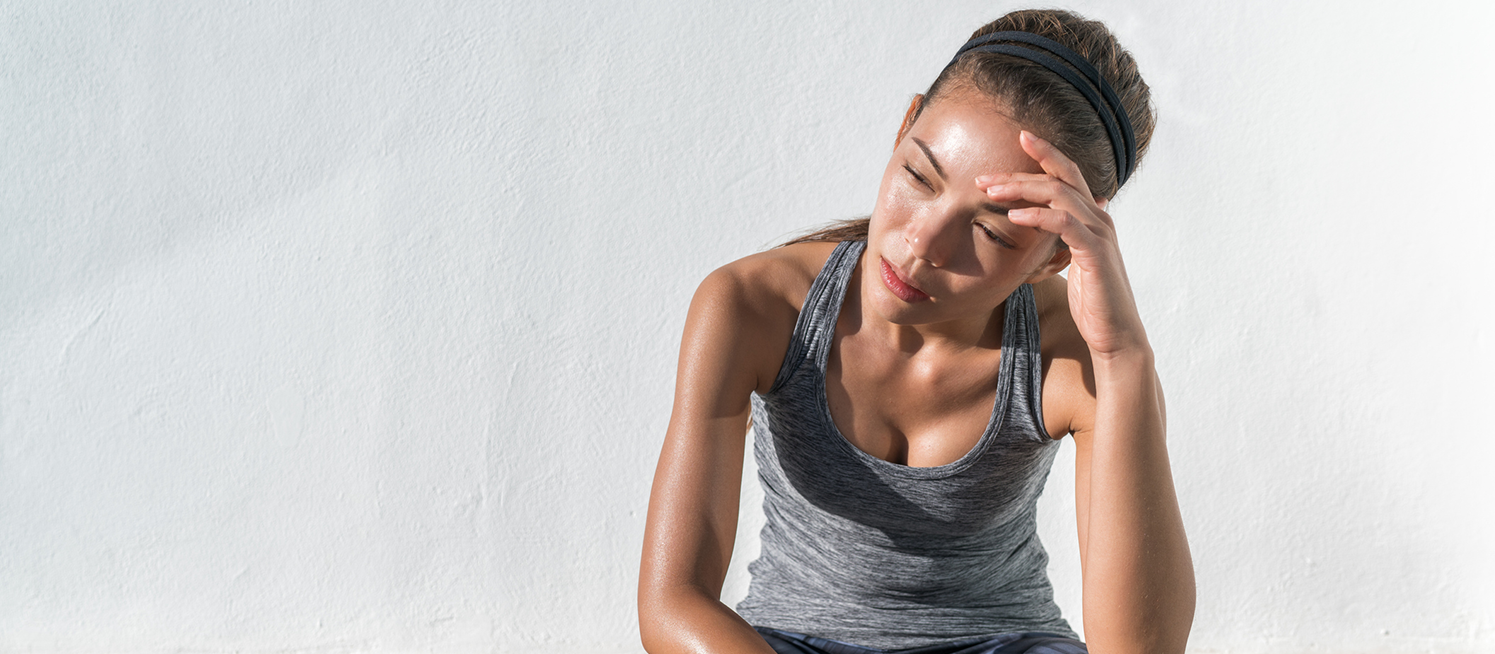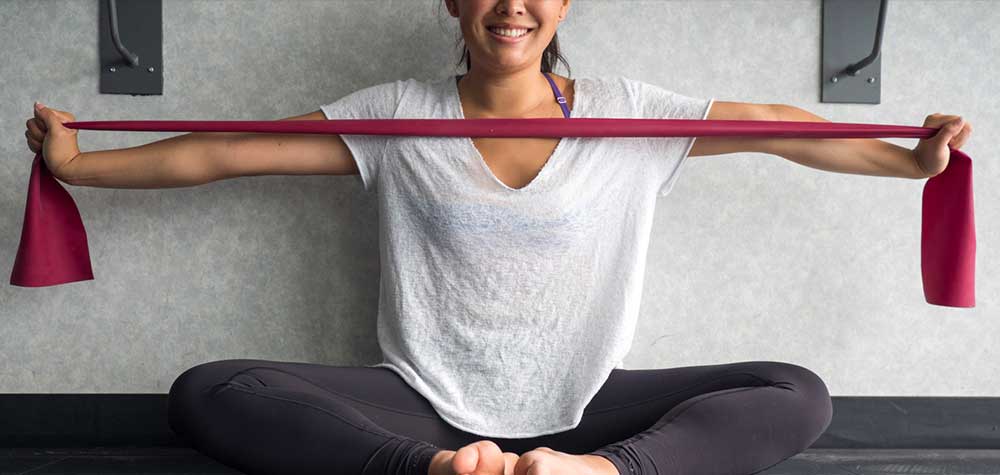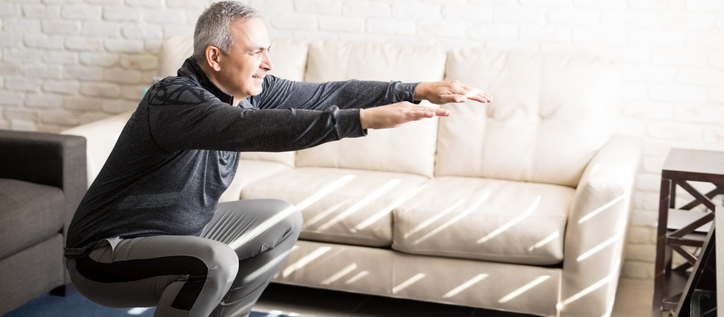What a Slower Running Pace May Tell You
June 03, 2020
Hope everyone is well. As of this writing, we're still in the thick of it with COVID-19. For many of us, we're still out there trying to get our workouts in, maybe even doing a bit more as a way to ward off a potential infection. Good for us!
The coronavirus is sneaky and there's still a lot we don't know about this virus. Believing that exercising grants us immunity because we're running, riding or sliding on the elliptical may come as a surprise, as it did to this one doctor who is an avid runner.
Her account, which was reported in a recent Runner's World article, may prove useful as we monitor our own physical activities. While Dr. Gabriela Rosas-Garcia was not an elite athlete, she was active and knew her baseline output. It's when those numbers began to change she knew something was off.
Here's her account of what happened and what worked for her as she found a way to recover:
I started running three years ago; it gave me the flexibility to squeeze in exercise whenever I had free time, in the afternoon or on weekend mornings. I live on the Upper East Side of Manhattan in New York City, and do most of my running in Central Park, by myself or with a few friends. I did my first half marathon, the NYC Half, in 2018, and I loved it.
Since then I’ve been doing a race every month, mostly through the New York Road Runners. I ran the NYC Marathon for the first time last fall, after volunteering for eight years as a doctor in the medical tent. Earlier this spring, I’d been running four times a week, 25 to 30 miles weekly, training for the Brooklyn Half Marathon (which was canceled due to the coronavirus).
When I started running, my pace was around an 11-minute mile. Last August, I ran the Percy Sutton Harlem 5K in 29:21, a 9:27 pace. In February, I ran the Washington Heights Salsa, Blues, and Shamrocks 5K in 29:57.
But on March 21, I went for a run and noticed my pace was close to 12 minutes per mile at what felt like the same effort as a 10-minute mile. My heart rate, which is usually between 120 and 130 when I run, went up to 150. I immediately thought, ‘There’s something wrong.’ Later that same day, I developed a fever, headache, and fatigue. The running seemed to make everything flare up.
The fever lasted four days; the headache and the fatigue lasted almost two weeks. I’ve never been so sick in my life. I had some chest tightness too, though fortunately, never shortness of breath.
On day eight of experiencing symptoms, my food started tasting too salty, even if I hadn’t put any salt on it. It’s something we see in many patients—either they can’t taste anything, or the food tastes either too salty or spicy. Some people will complain that the applesauce they’re eating is too spicy.
The next day, I lost my sense of smell. I always put on perfume in the morning, but on that day I couldn’t tell I had any on, so I put on more. My daughter said, “Mom, you put on a lot.” After that I kept trying to smell everything—the food I’d cooked, the shampoos and creams in my bathroom—but I couldn’t. My loss of smell confirmed it; even though I hadn’t been tested yet, I knew I had COVID-19.
On day eight of experiencing symptoms, my food started tasting too salty, even if I hadn’t put any salt on it. It’s something we see in many patients—either they can’t taste anything, or the food tastes either too salty or spicy. Some people will complain that the applesauce they’re eating is too spicy.
The next day, I lost my sense of smell. I always put on perfume in the morning, but on that day I couldn’t tell I had any on, so I put on more. My daughter said, “Mom, you put on a lot.” After that I kept trying to smell everything—the food I’d cooked, the shampoos and creams in my bathroom—but I couldn’t. My loss of smell confirmed it; even though I hadn’t been tested yet, I knew I had COVID-19.
I treated myself at home with rest, water, and over-the-counter medications—Pepcid and Zyrtec. Some of my infectious disease colleagues have found these drugs decrease what’s called a cytokine storm, a severe immune response to coronavirus in which the body attacks its own tissues. I’m not sure if it worked, but I never had to be hospitalized.
I slept probably 14 hours a day—on my stomach, a technique called proning, which is supposed to reduce respiratory symptoms. When I was awake, I would check my vitals every two hours.
On about day 18, I was able to walk a few blocks before I got dizzy. I worked up to three blocks, four blocks, then two miles of walking. Finally, on April 25—more than a month after my last run—I was able to run again.
On that run, I took it easy; my pace was still close to 12 minutes per mile. But I’ve been feeling stronger now, and my pace and heart rate are coming down. My blood pressure is lower, and my sense of taste and smell returned, too. I’ve been taking a baby aspirin every other day to reduce the risk of clotting. But otherwise, I’m feeling good.
Meanwhile, I also gave back by donating my plasma at the Red Cross, for Mount Sinai Hospital. They’ll treat patients with it and study what happens. They should have initial results sometime in the next few months. I knew that if I recovered I would have antibodies. We’re not sure how long these antibodies will protect you from future infections, or at what levels, but researchers are studying it. They used plasma from recovered patients to treat Ebola, and there’s some suggestion that a similar treatment might work for coronavirus too.
I’m so grateful that I’m back to running now, but I’m also glad I stopped when I did. Runners—or any type of athlete—sometimes don’t listen to our bodies the same way other people do, because we’re used to pushing through pain. Running will improve your immune system over time, but if you’re already sick, it may make things worse.
If you’re feeling fatigued or have a sore throat or fever, rest instead. The miles you miss, you can recover them, you can run the races later. But not if you don’t make it through.
We're all glad you made it through!
.png?width=258&height=54&name=Landice_logo%20(1).png)




